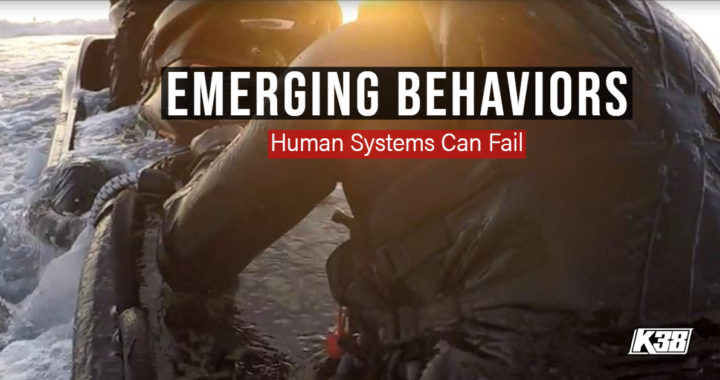Not All Knowledge is Equal
Emerging behaviors are a part of continuing education, science and development.
This idea of emergence has been around since at least the time of Aristotle!
Definition of emergency
1: an unforeseen combination of circumstances or the resulting state that calls for immediate action
2: an urgent need for assistance or relief the mayor declared a state of emergency after the flood. *
Attributed origin: Mid-17th century from medieval Latin emergentia, from Latin emergere ‘arise, bring to light’.
Emergent human behaviors are influenced. We like to focus on education and physical behaviors based off the mindset of knowledge a Coxswain pools or draws their selection process from.
REQUIRE CORRESPONDING ACTIONS
Effective training is coordinated to relieve the possibility of chaos in our maritime community. Chaos generally arises during the stages preceding a mishap.
We can align them from a beginning point of program inception, vessel and equipment selection, maintenance training and enforcement, recurring training, adaptive maritime standards and subsequent reviews.
When we initiate a training program in motion with a group of individuals the experience, maturity and physical levels are varied.
There are a lot of considerations to entertain in drawing up the expertise and the lack of knowledge and merging it into one unified and consistent motion.
This collective is a continual process of education which focuses specifically on tier level skills and evaluations corresponding with corrections and continual dialogue. Agencies need to adopt this same behavior for their program management.
TRANSCEND COMFORT
To do so competently requires a set of rules, laws or guidelines. Or we could call them standards. Typically based off past experiences ranging from positive to tragic.
We look to the boating safety community for the guidelines to proceed forward. We look to the coxswains in the field mishap reports and after-action reviews to determine how to modernize. What works and what is a dead end and needs to be discarded or modified?
But they first need to be challenged appropriately.
The success of training is dependent upon the trends, products, equipment updates, electronic migrations that continually evolve and interfacing with the select water type of operation.
You can increase your program efficiency if you do the following:
1. Ask your personnel to challenge a current training evolution with evidence opposing it.
2. Be willing to trial it in safe conditions.
3. Evaluate the results with everyone on board.
4. Video the demonstration and study it.
5. Review it again.
6. Final consensus review
7. Solicit outside peer review
That my friends are how we do this at K38, and we think it will work great for you.
*Merriman Webster Dictionary
______________________
Posted: June 15, 2019
Content Creator of Rescue Water Craft and Personal Water Craft boating international education standards: Shawn Alladio is the world’s foremost authority and leading subject matter expert. She cares most about her community and the culture surrounding the safety of event service providers and Rescue Water Craft operators, working hard and dedicated towards protecting their reputation, distributing safety information and continuing to train these amazing individuals to the highest standards of care.
__________
Have any questions? Join the Rescue Water Craft Association
and discover what your community is doing to modernize standards, safety and reduce liability!
Join the Rescue Water Craft Association
Use at your own risk. Please take a qualified Rescue Water Craft training course and maintain proper records and respect all the PWC, RWC, PPE, and gear OEM manufacturer warning labels and cautions.
